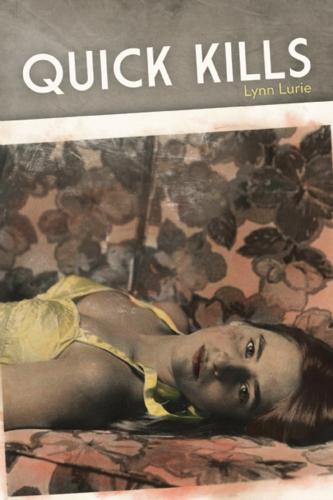I am limp in his arms as he rushes me inside. So many stingers the nurses lose count. I hear the sound of their rubber-soled shoes as they move across the linoleum. I am unable to open my eyes. Maybe they closed them the way I have seen in the movies. I want no one to see me, not even when I am dead.
He takes me from the emergency room to my parent’s house. I bend over for the spare key my parents keep under the WELCOME mat and feel how swollen my face is. The Photographer waits on the front stoop while I go inside.
Flickering candles on the dining room table turn the seated guests into shadows that rise and fall across the raised velvet wallpaper. Mother sees me first and gasps.
Hornets, I say slowly. Maybe wasps. My mouth is swollen shut on the left side.
Where were you?
The Photographer, he knew what to do.
Father does not look up from his conversation with the woman to his left.
I was going to tell them he is no savior but the maids were serving dessert.
I’m ok, really, I am. On my way to the stairs I stop at the front door and wave the Photographer on.
Mother and Father didn’t even know I was out. I hear the Photographer’s car turn the corner and the last sound I am able to make out before I fall asleep is Mother’s high-pitched giggle, the one she uses when she isn’t amused, then, I hear everyone’s laughter.
For the next year an allergist threads tiny needles beneath the skin on my inner wrist, injecting dozens of allergens. I ask if this is necessary, after all I know what caused it—wasps or hornets—I saw the hive.
Eventually the doctor says I am desensitized.
In the photographs he takes that afternoon, I am naked in an abandoned swimming pool. Rainwater has collected at the deep end and last year’s dead leaves float across the surface. The trees aren’t yet bare, their leaves having only begun to turn color. He has me stand ankle deep in the water before ordering me onto my back.
I make a face.
In the dry part then. He points to the far corner. Lie down and spread your hair above your head, like a halo.
Our first excursion was to the Bronx Zoo. The Photographer wanted to shoot me holding a python. The snakemaster wrapped the thickest, blackest one around my shoulders. An employee of the zoo offered to take a picture of the python and me with the Photographer, referring to me as the Photographer’s daughter. At that moment the snake picked up its head and began to slither towards my face. I did not scream. I pleaded with the snakemaster to take the python off me.
After the snake was in its tank, I washed my hands with a special soap. One wash was not enough. He let me wash as many times as I wanted, until he said it was possible the soap could burn a hole in my skin.
There is fear in my eyes. I see the fear clearly even in the blurred snapshot. The adults waiting in line with their children must have seen it too. Fear like I have seen in my sister’s eyes when she stood outside the kitchen door, craning her neck inside. Her back arched, she was prepared to turn away if Father was still seated in front of his orange juice and toast. When she saw that his spot was empty, that his juice glass had been drained, her eyes lost their intensity. It is the same fear the artist captured in the painting he made of my sister, myself, and my brother that hangs above the love seat in our parents’ house, although he didn’t put the fear into my sister’s eyes, but into mine.
Years later when I visualize my death it is in the same woods where the swarm rose from the ground. My clothes are on and I am wearing my winter coat. Once settled into a tiny pit I have dug with my hands, I cover myself with fallen leaves and swallow the pills I have been stealing from my sister and Mother and hoarding ever since I first went to the Photographer’s house.
A mucus-like patch more brown than red and now I cannot keep my favorite pair of underpants. I carry them to school and stop in the alleyway behind the five-and-dime where I plan to toss them into the Dumpster. What if someone sees me or finds them and knows they belong to me? Then he or she will know what happened.
Instead, I will need to take a bus to a nearby town where I don’t know anyone and find a quiet backstreet with a trash bin. When I’m sure I’m alone, I’ll take the underpants, stuffed between American history and algebra, out of my school bag. When they are in the trash I will cover them with the garbage already there, the browned apple cores, the leftover spaghetti, and the wad of paper towels stained with rot and rain, and wait at the nearest corner to make sure no one has seen me.
After all the planning, I go to the Dumpster in the alleyway and fling the stained underpants over the side. They catch on the metal rim and hang there, the pattern of lilacs laced together with purple ribbons.
Mother calls upstairs. Dinnertime.
I already ate, I call back. Which could have been true, because the first time I went to the Photographer’s house he
